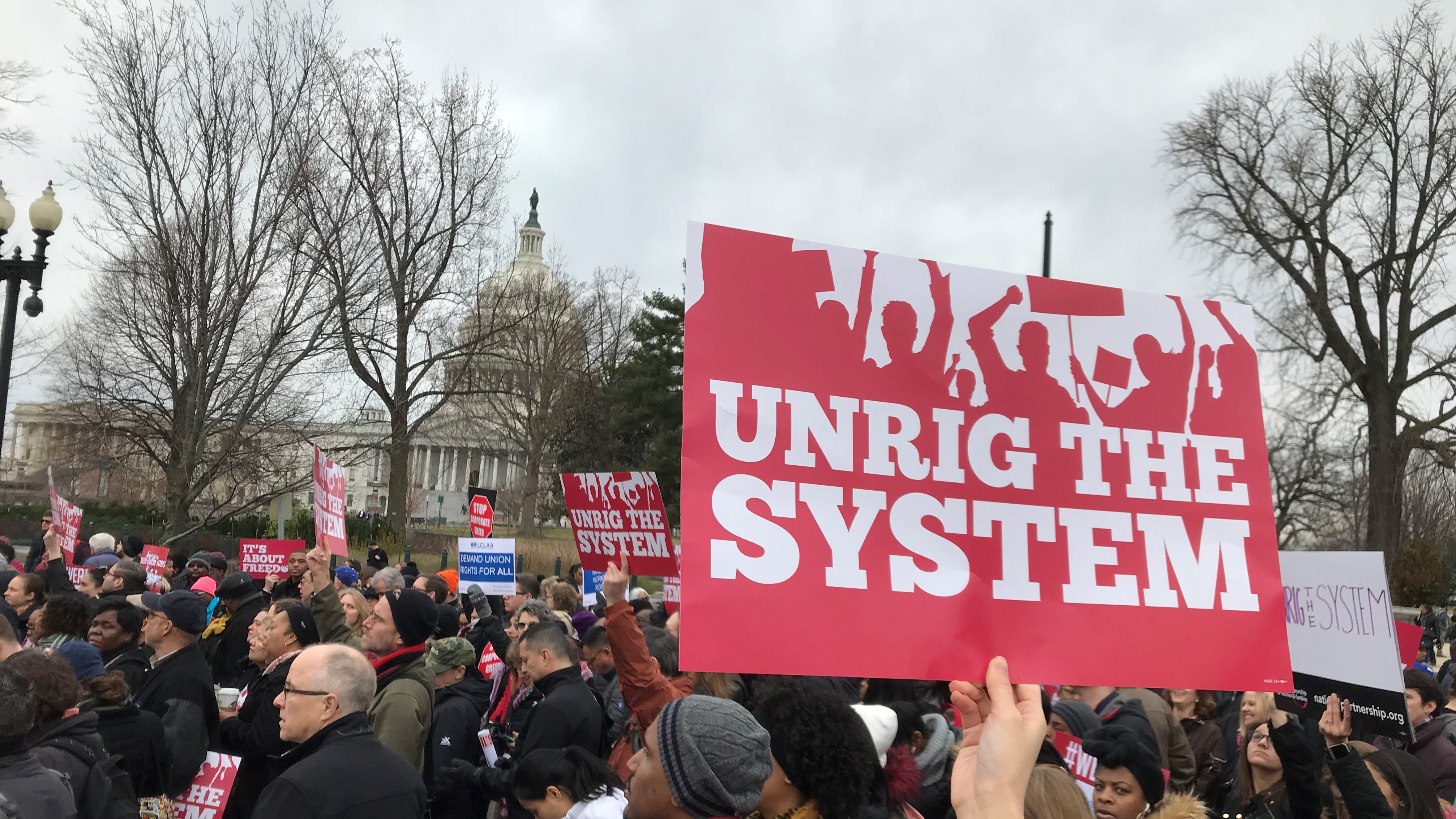Public service workers would have more freedom to form unions under proposals introduced in Congress today.
The Public Service Freedom to Negotiate Act (H.R. 3463 and S. 1970) would safeguard public service workers’ right to a seat at the table by setting a minimum nationwide standard of collective bargaining rights that states must provide. The legislation was introduced in the House of Representatives by Pennsylvania Rep. Matt Cartwright and in the Senate by Hawaii Sen. Mazie Hirono.
The bills would give public service workers the same basic rights and freedoms enjoyed by their private sector counterparts. The legislation would also ensure that public service workers have collective bargaining rights, including the rights to:
- Join together in a union selected by a majority of employees;
- Collectively bargain over wages, hours, and terms and conditions of employment;
- Access dispute resolution mechanisms such as mediation or arbitration;
- Use voluntary payroll deduction for union dues;
- Engage in activities related to collective bargaining and mutual aid;
- Not have their union be subject to rigged recertification elections; and
- Sue in court to enforce their labor rights.
The introduction of this bill is the latest attempt to unrig a system that favors the wealthy over working people. It marks another big step forward in the growing political and grassroots momentum behind unions after years of attacks on workers from right-wing special interests and politicians.
“America’s workers have withstood attack after attack on their right to organize. With renewed energy they are organizing in unions to reclaim their power,” said AFSCME President Lee Saunders. “This legislation is about defending the freedom of public sector employees to form and join unions if they choose to do so.”
Across the country, behavioral health workers, emergency medical technicians, teachers and others are demanding unions because of the value and protections they provide. Union members earn higher wages and are more likely to have employer-provided health care, pensions and benefits such as paid sick and family leave. Unions also set standards that benefit all workers, union and nonunion alike.
For women and people of color, unions provide the best vehicle to combat discrimination in the workplace and address the unjust racial and gender pay gap. African American union members earn 19% more – and Latino union workers 28% more – than their nonunion counterparts. In some sectors the difference is even greater. Women who are members of a union earn 21% more than their nonunion counterparts.
The introduction of the legislation follows recent news from Nevada, where 20,000 state employees won the freedom to collectively bargain for wages and improvements on the job such as workplace safety. The Nevada collective bargaining bill, which was signed into law on June 12 by Gov. Steve Sisolak, is the largest statewide expansion of collective bargaining for state workers in 16 years anywhere in the country.
Additionally, Delaware Gov. John Carney earlier this month signed into law a bill that protects public sector unions and allows more state employees to collectively bargain for higher wages.
With public support for unions at a 15-year high; with presidential candidates embracing unions; and with working people across the country taking collective action in their workplaces to join unions, it’s clear that Americans are looking to unions as the most effective vehicle to level the playing field for working people in an economy that favors the wealthy.
